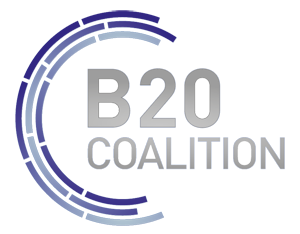The Catalyzing & Scaling Impact Enterprises to Benefit Poor & Vulnerable Communities project evaluated the impact enterprise sector of today and provided insights into how the Rockefeller Foundation could accelerate the development of the sector going forward. WDI defined impact enterprises, mapped barriers to impact and scale, and provided a roadmap for their future engagement in venture development at the Base of the Pyramid (BoP). The work built on the foundation’s five-year impact investing project.
The current business process outsourcing (BPO) industry has been successful at creating job opportunities for well-educated segments of the population in Asia and Africa. Examples include staffing call centers, carrying out accounting tasks, and performing data analytics. WDI’s research led to the creation of a roadmap that identified BPO tasks that are available or could be transitioned to workers from poor and vulnerable communities. The work also identified the factors keeping this work from being moved, and the ways in which the Rockefeller Foundation could engage the sectors to lessen those roadblocks.
The goal of the project was to evaluate markets and look for ways to foster public-private partnerships with Base of the Pyramid (BoP) enterprises. Another goal was to develop a blueprint for a new asset class of private equity funds considering BoP enterprises and investments in Bangladesh, Vietnam, India, Indonesia, Pakistan and the Philippines.
WDI was awarded a grant to compare USAID’s traditional Value Chain methodology to poverty alleviation with that of WDI’s Base of the Economic Pyramid (BoP) methodology. The goal of the project was to convince funding agencies such as USAID to incorporate a BoP approach when developing projects in emerging markets.
The goals of this 16-month study were: identify the unique insights each of these approaches offers with regard to poverty alleviation, map the initiatives currently underway in the development community that support Base of the Pyramid and social enterprise ventures, consolidate and analyze the experiences to date, and provide recommendations for enhancing the role and impact of these new approaches in the efforts to reduce poverty in the developing world.
WDI Senior Research Fellow Ted London spoke with Michigan Ross writer Terry Kosdrosky in advance of London’s presentation at the Positive Business Conference May 14-15 at Ross.

Click here to read the article.
Click here to learn more about the Positive Business Conference.
WDI Senior Fellow Ted London delivered a keynote address on April 8 at the G20-B20 Workshop on Inclusive Business in Ankara, Turkey. The workshop precedes the April 9-10 G20 Development Working Group (DWG) meeting, also in Ankara.

London spoke to attendees from government, business, international organizations, and civil society groups about his thoughts on “The Status of Inclusive Business and Challenges for Scaling Up.”
The goal of the workshop was to create a common framework and policy environment for inclusive business (IB) based on existing case studies of IB models in the private sector and on previous IB policy recommendations for governments and donors. The workshop built upon the G20’s extensive previous IB-related work and the knowledge generated within the IB field to-date in order to address how the policy environment related to IB can advance the opportunities for private sector companies to further reach the poor.
The Group of Twenty (G20) is the premier forum for its members’ international economic cooperation and decision-making. It comprises 19 countries plus the European Union. G20 leaders meet annually.
The Business 20 or B20 is an outreach group of the G20 which represents the international business community. Bringing together business leaders from across the globe, the B20 reflects the private sector’s role as the driver of strong, sustainable, and balanced economic growth.
WDI Senior Research Fellow Ted London has penned a blog post that calls on BoP leaders to take stock of the inclusive business domain, noting achievements over the past decade, but cautioning that there are warning signs on the horizon.

Posted on The Practitioner Hub for Inclusive Business website, “Inflection Point” (read here) notes that IB can play an important role in alleviating poverty, while being profitable and scalable, but leaders in the IB community must approach their work with humility and learn faster.
“The challenge before us now is to remain humble in our work, take thoughtful action, and collaborate more closely to achieve the vision of developing a robust pool of inclusive business ventures, supported by partnership ecosystems, that are financially sustainable, and that achieve social impact at scale,” London writes. “To do this, we need to learn faster, which means learning not only from our successes, but also from our failures. We need to share these learnings more widely, and create a community that benefits from the collective experiences of others, communicates more broadly and collaborates more readily.”
The article builds on WDI’s action agenda for IBs serving the BoP. “A Roadmap for the Base of the Pyramid Domain: Re-energizing for the Next Decade” calls on IBs to act for today, invest for tomorrow, and build a community of sustainable, scalable BoP enterprises focused poverty alleviation. Moving forward, London asks IBs to identify the best portfolio of partners for scaling businesses as well as answer the question of how a partnership ecosystem should evolve over time.
Madison Ayer, who leads two social ventures in Africa, is featured in two recent WDI videos. In the first, Ayer discusses the latest with Honey Care Africa. In the second, he talks about a new venture called Farm Shop.

In both videos, Ayer is interviewed by WDI Senior Research Fellow Ted London.
Honey Care Africa partners with smallholder farmers across East Africa to strengthen incomes and grow Africa’s “family honey company” through sustainable beekeeping. To watch Ayer and London talk about Honey Care Africa, click here.
Farm Shop is a social enterprise based in Kenya with the mission of increasing smallholder productivity by providing farmers high quality products, services, and information.To watch Ayer and London discuss Farm Shop, click here.